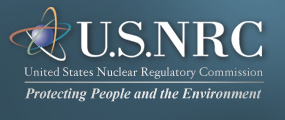New Reactors
- Application Schedule for New Reactors
- Expected New NPP Applications
- Construction Reactor Oversight Process (cROP)
- Projected Locations of New Reactors
- New Reactor Licensing Process (video)
- FAQs About License Applications
- Advanced Reactors
- Quality Assurance for New Reactors
- Regulation of Groundwater Quality at NRC Licensed Facilities
In accordance with its mission, the U.S. Nuclear Regulatory Commission (NRC) protects the health and safety of the public and the environment by regulating the design, siting, construction, and operation of new commercial nuclear power facilities.
What We Regulate
For new reactor facilities, the NRC reviews applications submitted by prospective licensees, and (when appropriate) issues standard design certifications, early site permits, limited work authorizations, construction permits, operating licenses, and combined licenses. At present, the NRC anticipates that these activities may involve new light-water reactor (LWR) facilities in a variety of projected locations throughout the United States.
For additional detail regarding the NRC's regulation and licensing of new LWR facilities, including the status of licensing applications, see the following related pages:
For information regarding the NRC's regulation and licensing activities related to the design, siting, construction, and operation of small LWR and non-LWR plants, see our Advanced Reactors page.
How We Regulate
In regulating the design, siting, construction, and operation of new commercial nuclear power facilities, the NRC employs a combination of regulatory requirements, licensing, and oversight. For additional information on the new reactor licensing process, see our video, brochure (NUREG/BR-0298), and the following related pages:
The NRC considers public involvement in the agency's activities to be a cornerstone of strong, fair regulation of the nuclear industry. Toward that end, our regulatory process provides a variety of opportunities for citizens to be heard. For example, we announce upcoming public meetings on our Web site to enable interested members of the public to participate. We also encourage public involvement in rulemaking, and we provide related information on our Rulemaking Dockets page. In addition, we provide opportunities for public involvement in hearings, as well as public information on hearing opportunities and license applications.

